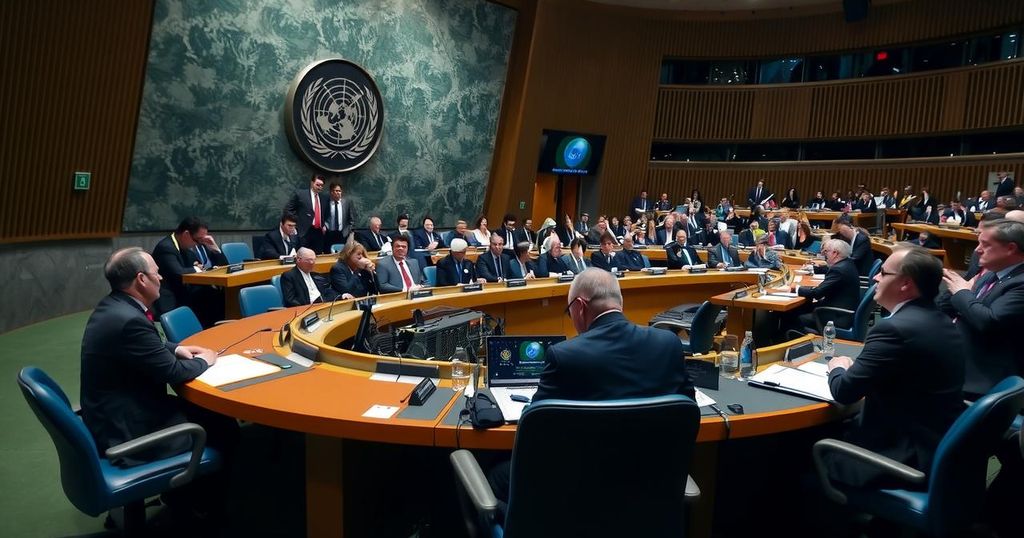The climate crisis is worsening, despite successive international agreements, due to inadequate actions by governments and businesses. COP conferences have fallen short of delivering necessary commitments, with nations failing to reduce fossil fuel reliance significantly. Immediate and robust measures are required, focusing on emissions reductions and redirecting fossil fuel subsidies to renewable energy initiatives to confront the escalating environmental challenges.
The climate crisis continues to worsen despite numerous international commitments and conferences aimed at addressing environmental issues. The COP conferences, originating from the 1992 Earth Summit in Rio de Janeiro, have consistently provided governments with opportunities to enact meaningful climate action. However, binding resolutions have often been sidestepped, resulting in increasing biodiversity loss, rising global temperatures, and record fossil fuel production, all while necessary emissions reductions remain elusive.
Prominent figures like former President Donald Trump and oil industry leaders perpetuate the status quo, complicating global efforts to transition to clean energy sources. Nonetheless, the fundamental obstacle lies within governments and corporations that profess commitment while failing to implement effective strategies in a timely manner. For instance, the recent COP29 conference pledged $300 billion annually by 2035 to assist developing nations, a step that pales in comparison to the expected financial needs, alongside the substantial $620 billion still allocated to fossil fuel subsidies.
Despite ambitious corporate targets, many leaders, including Jeff Bezos of Amazon, have seen their companies’ emissions increase rather than decrease, undermining any potential credibility. Experts emphasize that maintaining the current trajectory will lead to long-term economic repercussions, further stating that effective climate resolutions must prioritize substantial and immediate emissions reductions rather than superficial net-zero policies. This urgency is compounded by the need for a substantial investment of $6.5 trillion annually by 2030 to combat climate change effectively.
Ultimately, climate policy makers are urged to recognize that business-as-usual approaches cannot suffice and to directly address the realities of fossil fuel reliance. Proposed reforms to the COP process include imposing stricter guidelines on host nations and increasing accountability through scientific inclusion and oversight. Swift, practical measures, such as a reduction in fossil fuel subsidies and prioritization of renewable investments, are necessary for making tangible advancements against climate change. The ongoing transition towards sustainability requires collective commitment and a critical focus on delivering on effective emissions cuts despite current challenges.
The climate crisis has escalated dramatically over the past three decades, initiating global discussions and agreements aimed at mitigating its effects. Since the first Earth Summit in 1992, annual COP conferences have convened world leaders to address climate change and biodiversity issues. Despite these meetings, significant progress has been hindered by slow responses from governments and businesses, alongside persistent support for fossil fuels. The need for immediate, ambitious actions has become increasingly urgent, as rising global temperatures threaten ecosystems and food security worldwide.
In summary, the mounting climate crisis necessitates immediate and decisive action from global leaders and industries. While international initiatives like COP conferences aim to foster collective climate responsibilities, the disappointing commitment levels reveal a troubling trend of inaction and inadequate support for critical environmental measures. Recognizing the gravity of the situation and embracing substantial reforms, investments, and accountability is essential to secure a sustainable future. The transition is underway, but it requires a heightened focus on actual emissions reductions and a rejection of complacency in favor of urgency and accountability.
Original Source: bylinetimes.com






